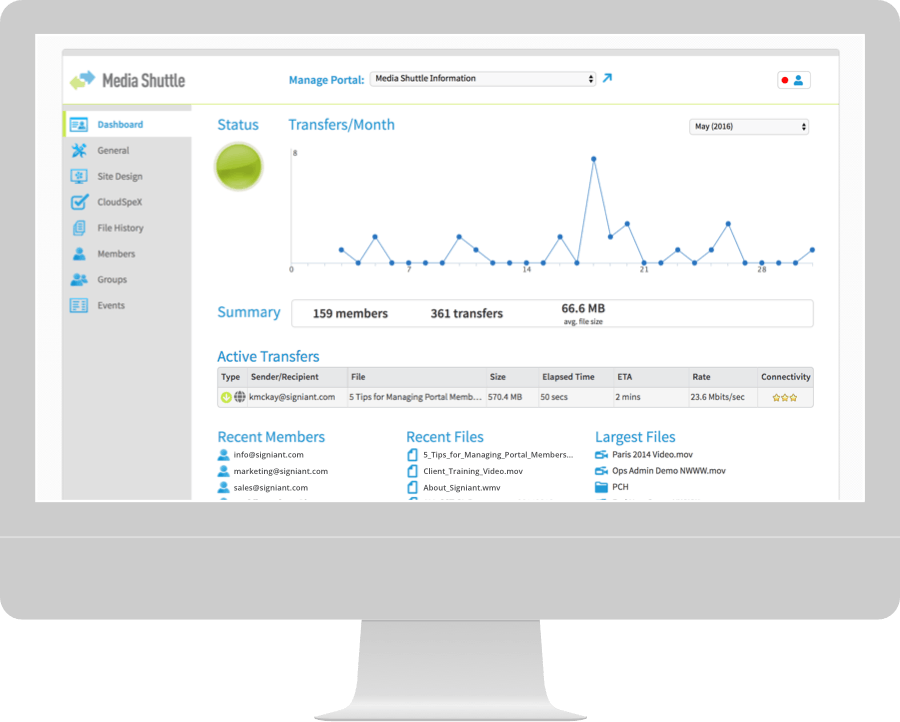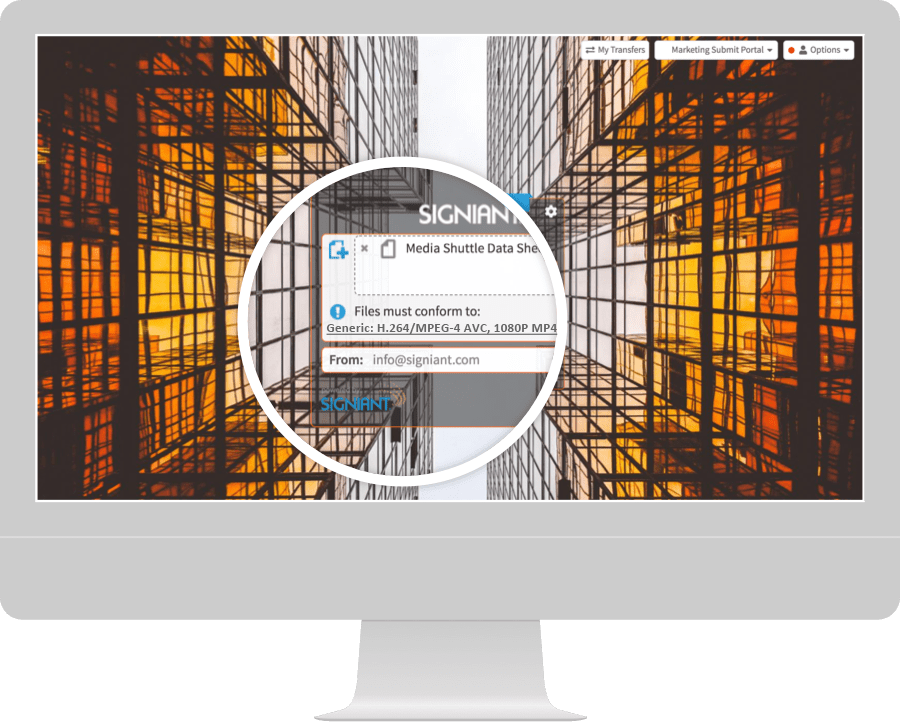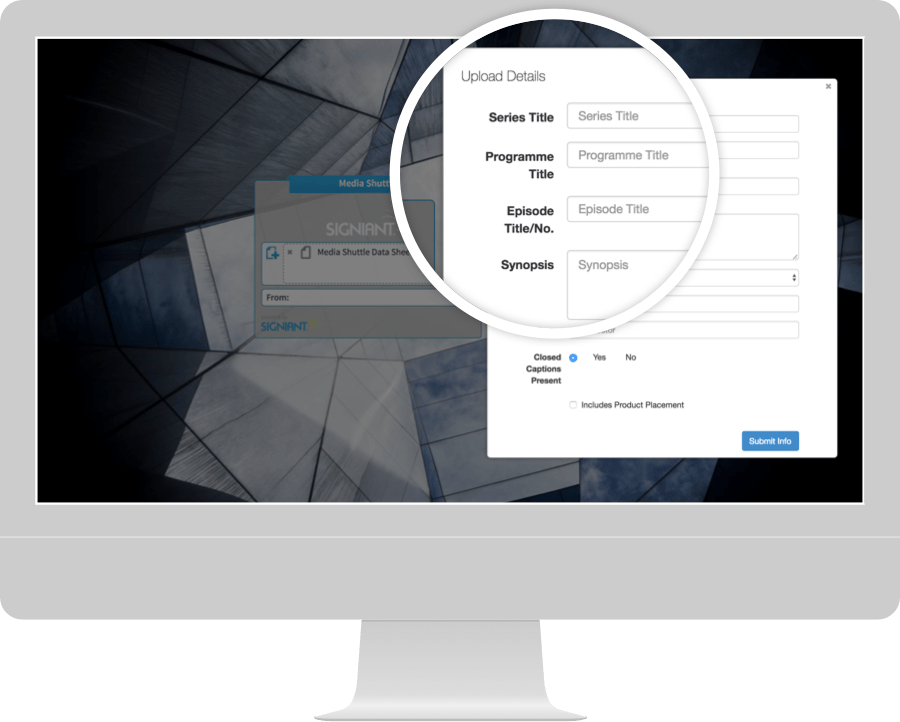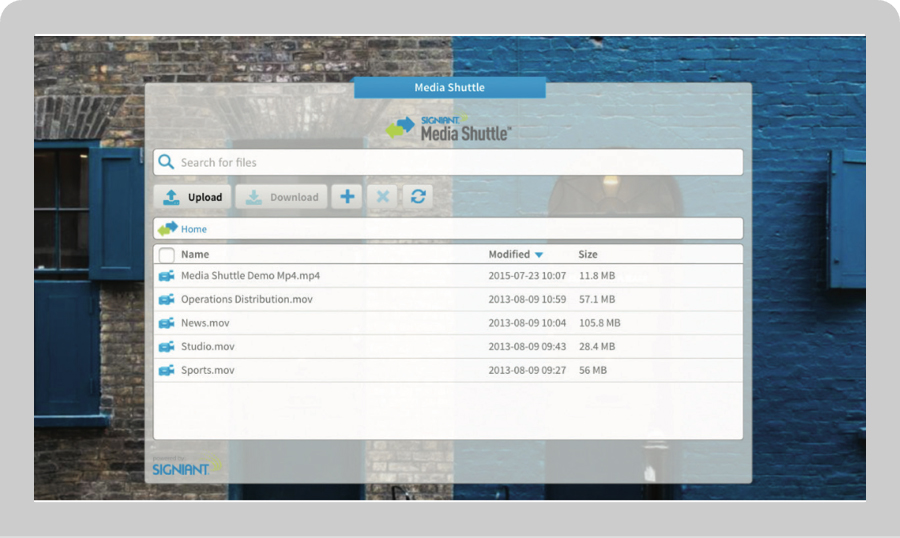The Latest Trend in Cloud Ingest Portals
The unique demands of the media industry have created an equally unique ecosystem. With high-resolution video constantly moving over the Internet during production, post production, and multi-device, multi-channel distribution, as well as the need for flexible storage and security at every stage — all under impossibly tight timelines — there isn’t another industry like it. It’s not surprising then that technologies that work for some industries often don’t work the same in media, and cloud ingest is a great example.
While there are plenty of tools for getting data into the cloud, professional media requirements are particular, such as:
- File sizes are enormous so fast, reliable uploads are fundamental;
- Video file specifications vary widely across the supply chain, so file validation against exact specifications is critical;
- Custom metadata entry is required to catalog and find video content.
Custom-Built vs. Out-of-the-Box Software
In order to meet those needs, media companies that were early cloud adopters spent millions building highly customized ingest applications. Today, the trend is quite different as many companies are abandoning that strategy in favor of off-the-shelf SaaS solutions like Signiant’s Media Shuttle. With its simple, customizable user interface, built-in acceleration, metadata capture and pre-transfer file validation, Media Shuttle provides a customizable out-of-the-box cloud ingest portal that has most of the functionality of a custom solution but offers tremendous business benefit.
Why the switch? The economic benefits of off-the-shelf solutions are too big to ignore. With a solution like Media Shuttle:
- You can be up and running in a day.
- Infrastructure is operated for you, scaling up and down to meet your needs.
- The solution continues to improve without expensive change orders and more custom work.
- And, of course, these solutions are orders of magnitude cheaper than large, custom projects.
8 Advantages of SaaS Cloud Ingest Portals
1. Multi-tenant architecture: The cost to build and maintain the solution is amortized or shared across many customers that are served via a multi-tenant cloud architecture.
2. Cloud services: With SaaS (Software as a Service), customers don’t have to worry about procuring hardware, deploying or managing software, running or monitoring servers, scaling up during peaks usage or updating software. Those services are automatically handled for you.
3. Support for hybrid-cloud / multi-cloud environments: SaaS solutions have the potential to be storage independent, allowing customers to choose storage location, whether on-premises or cloud, on a per portal basis.
4. Control and Access: If the SaaS solution has the flexibility of storage independence, customers get the best of both worlds: compete control over storage location and costs, along with global access to assets with reporting and operations control from a secure web interface (Figure 1)

5. File specifications: Media file specifications, formats and standards are central to managing professional media workflows. Features like Media Shuttle’s CloudSpex™ (Figure 2) for pre-transfer delivery spec compliance are basic needs for media professionals.

6. Metadata capture: Another basic need is the ability to easily capture metadata (Figure 3), which is critical for organizing and searching video file databases in cloud storage.

7. Workflow driven: SaaS supports the ability to easily set up and take down an unlimited number of cloud ingest portals (Figure 4) — based on teams, projects, clients and/or end users — matching the event-driven workflows at the heart of media production and distribution.

8. Evolving with the industry: SaaS typically contains instrumentation code that collects data on a product’s performance and usage, allowing engineers to respond to trends across the user base. In turn, customers benefit from a product that is evolving along with the industry.
About Media Shuttle
Media Shuttle was the first SaaS solution on the market (2012) for accelerated large file transfers. It was developed with the media industry in mind, offering all eight of the above benefits and more. Today, Media Shuttle is used by over 400,000 professionals from over 25,000 businesses in every country in the world, supporting workflows that involve person-initiated file transfer across the global media supply chain.
To learn more about Media Shuttle, visit signiant.com/mediashuttle.


